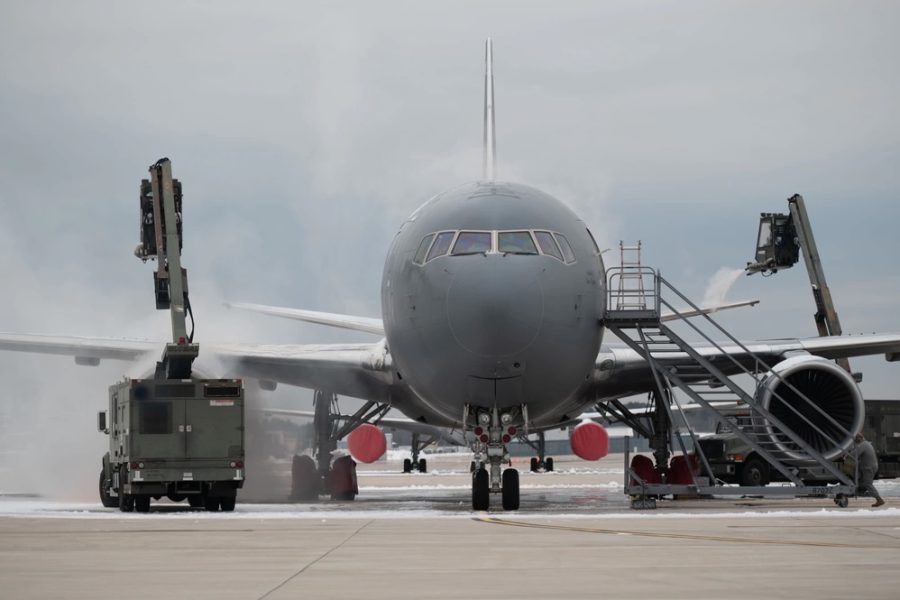Boeing lost $222 million on two key Air Force programs in the first quarter of fiscal 2024: $128 million on the KC-46 aerial refueling tanker and $94 million on the T-7A Red Hawk trainer, where the total losses already exceed more than $7 billion and $1 billion, respectively.
Despite the hits, Boeing’s Defense Space & Security (BDS) sector reported a 6 percent bump in revenue from about $6.5 billion in the first quarter of 2023 to nearly $7 billion in the first quarter of 2024, thanks in part to orders for P-8 maritime patrol aircraft for the Royal Canadian Air Force and German Navy, a final contract for 17 F/A-18 fighter jets for the U.S. Navy, and a cost-type contract modification from the Navy for two more test examples of the MQ-25 aerial refueling drone.
“Our game plan to get BDS back to high single-digit margins by the 2025, 2026 time frame remains intact,” Boeing Chief Financial Officer Brian West said April 24 during the company’s 2024 first quarter earnings call, echoing a statement he made at the last quarter’s earning call.
“Overall, the defense portfolio is well-positioned,” he added. “As seen in the initial FY25 presidential budget, there’s strong demand across the customer base. The products are performing in the field, and we’re confident that our efforts to drive stability will return this business to performance levels that our investors recognize.”
Much of the losses in those programs trace back to Boeing’s zeal to win defense competitions in the last decade, which made it “accept too much risk” on fixed-price programs, Chief Executive Officer David Calhoun has previously said. But West said progress is being made.
“Despite the relatively modest updates in the quarter, we continue to retire risks and remain focused on maturing these programs quarter in and quarter out,” he said. A Lot award for the KC-46 expected later in the year should also help with cash flow.
Retiring risk is the name of the game: West looked forward to delivering two VC-25Bs, better known as “Air Force One.” That program has cost Boeing more than $1.3 billion, and delivery will not take place until at least 2027.
“We’re retiring risk every day, particularly on a program like VC-25B,” West said. “We will deliver two airplanes, and then that will be over as a program.”
The executive expected more de-risking as the T-7 moves through flight testing and the KC-46 program receives more orders later this year.
Meanwhile, Boeing is still hammering out the specifics for possibly acquiring Spirit AeroSystems, the aerospace subcontractor being investigated after a Jan. 5 accident involving a door plug the company installed on an Alaska Airlines Boeing 737 fuselage blew out mid-flight. Spirit was already fighting a shareholder class-action lawsuit, lodged in December, alleging an “excessive” amount of work defects at the company, based on whistleblower reports.
Spirit makes components for a range of military aircraft including the KC-46 tanker, the P-8, and the B-21 Raider stealth bomber. The discussions between Boeing and Spirit are ongoing, West said.
“As with any large and complex deal, there are a number of terms and issues we need to work through, including price, financing and other key items. And the best approach to handling and potentially divesting certain work that Spirit does for other customers,” he added. “We believe in the strategic logic of a deal, but we’ll take the time needed to get this right before we decide to enter into agreement.”
